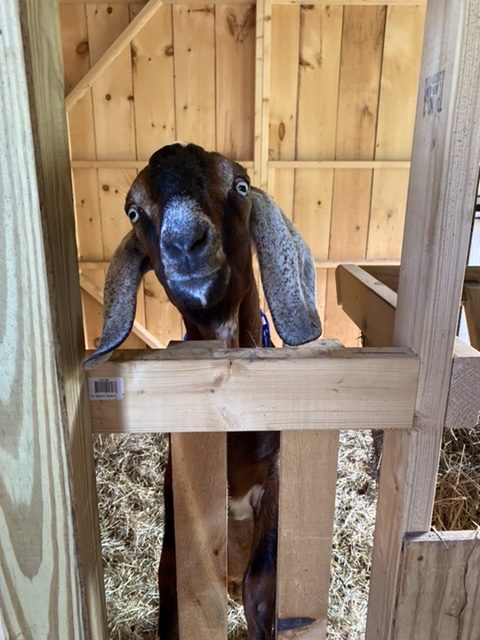
Can we start with this? If you have never tried FRESH goat’s milk from Mini Nubian goats, you have not tried goat milk, and don’t know what you’re missing.
I wish we could do a blind side by side taste test over the Internet, but we can’t. So, let’s move on to things we can learn online.
What can goat milk do for you?
Goat milk is, for most people, easier to digest than cow’s milk. Why?
The fat molecules in goats milk are much smaller than the fat molecules in cows milk. Fat takes more work to digest in general? This one difference in the size of the milk’s fat molecules makes it easier to digest. It also means that it’s much harder to make butter from goat milk; one needs a special machine, called a separator, to do so.
Goat milk is said to be “naturally homogenized.” What does that mean and why does it matter? Homogenized means “made uniform in consistency.” Fresh cows milk, if left sitting on the shelf, will naturally separate, and the fat will float to the top. In earlier times, people did not find this desirable: they wanted the fatty cream to be distributed uniformly throughout their milk. To avoid this lumpy texture, homogenization via machine became popular. And, of course, any processing changes the texture and quality of the raw milk. The great thing about goat milk is that (partially because the fat molecules are smaller) it’s naturally homogenized – smooth and consistent without it undergoing added processing. So, all the nutrients inherent in the milk stay there, where they can do a body good.
Goat milk contains less lactose (milk sugar) than cow’s milk. Human bodies produce enzymes to help break down food, especially sugar. The lower sugar content of goat milk makes it easier on our stomachs to digest, simply because we need less of a particular type of enzyme to break down the lactose. Those who are lactose intolerant and therefore unable to drink cow milk (and yogurt/cheese products made from cow milk) without gastral discomfort are sometimes able to tolerate goat milk.
This lower sugar content doesn’t mean that it doesn’t taste sweet, though! Goat milk from our Mini Nubian herd is creamy, sweet, and delicious, and on average has higher butterfat than average cow milk: 4-5.5%.
In general, though not always, those with allergic sensitivities to cow milk can enjoy fresh goat milk! For instance, one of the most common allergies in children in the US under the of age of three is to cow milk (and cow milk products). It relates to a particular protein in the cow milk called Alpha s1 Casein. The levels of Alpha s1 Casein are about 89% less in goat milk – which is one of the main reasons why people who have dairy sensitivities can use goat milk and related products. In recent years, cows have been selectively bred to not carry genes for Alpha s1 (also known as A1). They can carry homozygous A2/A2 genes. The miniature Jerseys at Storybook Farm all have A2/A2 milk.
Don’t just take our word for it…
If you want to get deep into the topic of allergies, and read a real-life testimony from a mom who had a very rough time with a baby allergic to cow’s milk, read this article.
So, here’s the overall nutritional breakdown: Goat milk is a good source of protein, contains less sugar (lactose), 13% more calcium, 25% more vitamin B6, 47% more vitamin A, and 134% more potassium than whole cow milk.
If you are interested in investigating the minutia of nutritional differences between cow and goat milk, click HERE. [https://www.nutritionadvance.com/goat-milk-vs-cow-milk/]
And… it’s not just the milk, remember…
Because we’re talkin’ milk products as well. Here at Storybook Farm, we make cheeses: Chèvre (sweet and savory), Feta, Mozerella, and hard cheeses, such as Farmhouse Cheddar.
We also make an incredibly thick, delicious Greek-style yogurt that is sweet naturally, without adding any sugar.
So… if you have milk sensitivities, or your children do, consider goat milk and its value added products. And, we offer herd sharing so you can legally obtain milk from goats that you own (but don’t tend), if you’re local to us in Pendleton County, WV. Click HERE to find out about herdsharing!